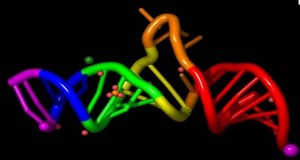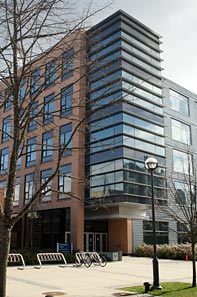It is increasingly recognized that “ribo-regulation” is a key determinant of gene expression and often relies on selective turnover of RNAs to modulate their activity. My trainees and I employ model systems for investigating this process using appropriate biochemical and molecular biological tools. Our goal is to explain how the properties of the relevant enzymes and RNA chaperones, the functional state of the mRNA (e.g., its efficiency of translation) and the secondary or tertiary structure of the RNA substrate determine its fate. Turnover of mRNA in Escherichia coli is believed to be initiated by specific endonucleolytic cleavages followed by exonucleolytic “scavenging” of the newly created 3′ ends. We have cloned, over-expressed, and purified the key ribonucleases as well as several accessory proteins including an RNA helicase and RNA chaperones. A major success has been the reconstitution of mRNA degradation in vitro from purified enzymes and substrates. Our work has shown that RNase E, the principle endonuclease, is 5′-end-dependent, the first such example. This property can explain several aspects of mRNA decay, including the reason why intermediates in the decay process are so transient. Our current work is aimed at identifying the key residues in the RNA binding and catalytic domains of RNase E, its close relative RNase G, and the exonuclease, polynucleotide phosphorylase, a model for the eukaryotic exosome. We use a variety of techniques including mutagenesis, deletion mapping, partial proteolysis and structural determination. We have also created substrates with defined secondary structures or novel conformations (e.g., circular RNAs) to unravel the pathways of mRNA turnover. Our research is funded by CIHR.



